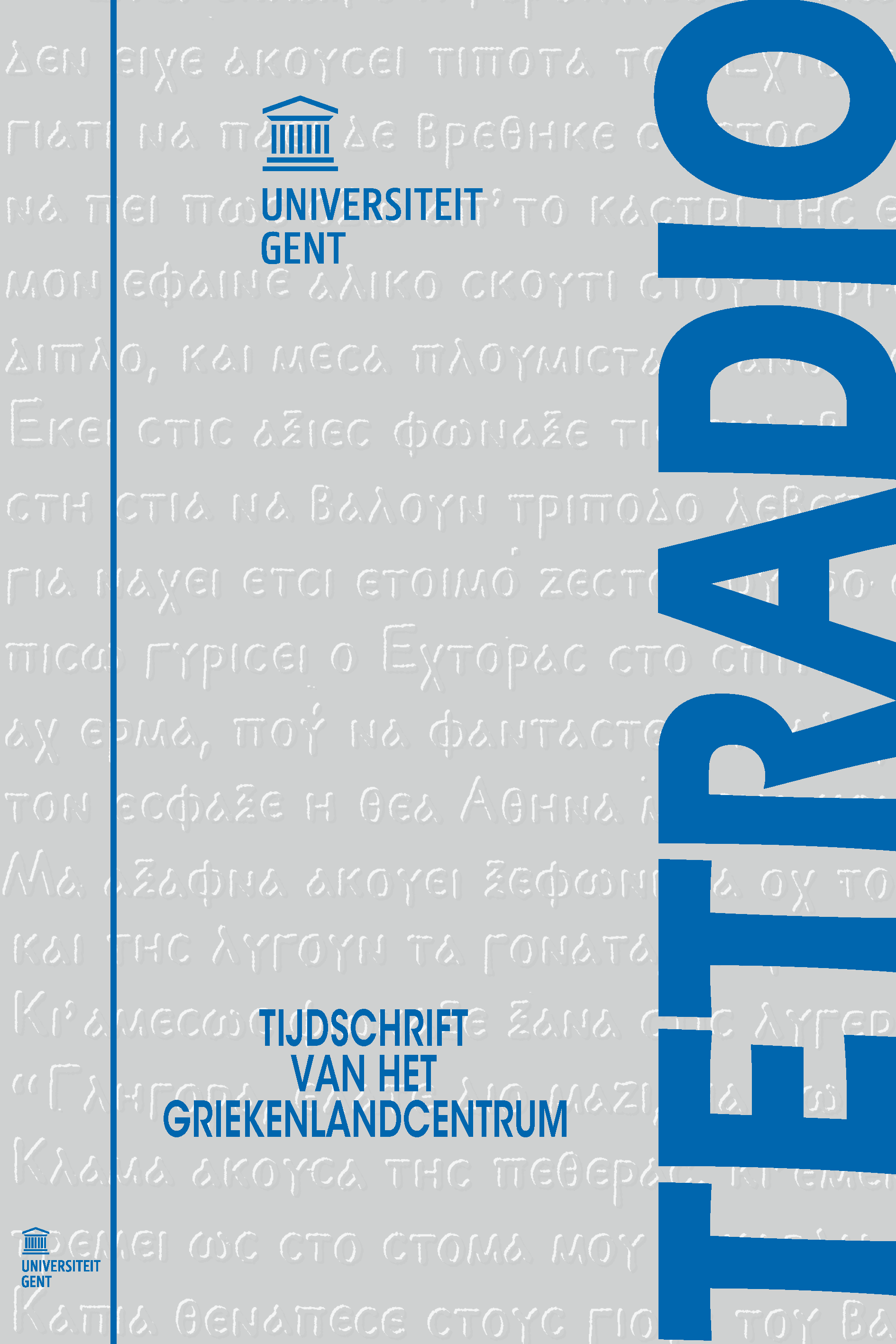Het vroege christendom en de antieke mysterieculten
Abstract
The possible influence of the Greek, Roman and so-called Oriental Mystery Cults or Oriental Religions on early Christianity in its many forms has been a prominent topic in scientific debates between theologians, church-historians, comparative historians of religions, classicists and orientalists since the nineteenth century. On the wide spectrum of answers to this question, some have claimed Christianity simply is a mystery religion both in its central rituals and in the myth of a dying and resurrecting god, others have stated that there is no real influence at all, and that even the terminological parallels should be seen as superficial translations of purely Jewish Old Testament concepts. This contribution cannot answer all the questions relevant to this debate but tries to give a short outline of the Greek (Eleusinian and Bacchic) Mysteries, and some of the Oriental cults (especially Isis and Osiris, Mithras) with reference to the work of Franz Cumont and Alfred Loisy and its later reception. Christianity is discussed both from some of the New Testament texts, the Apologists and later examples of deliberate use of mystery-terminology to describe the Christian sacraments. In conclusion some methodological reflections are made and the author positions himself on the side of those who do think there was a real influence at different stages in the development of mainstream Christianity.
How to Cite:
Praet, D., (2016) “Het vroege christendom en de antieke mysterieculten”, Tetradio 25(1): 3, 57–101. doi: https://doi.org/10.21825/tetradio.91851
Downloads:
Download PDF
View PDF

